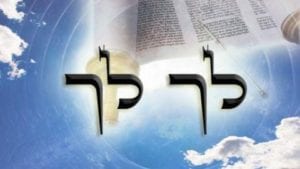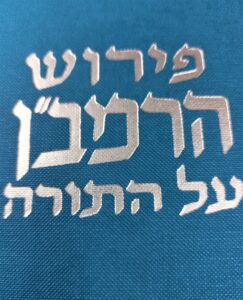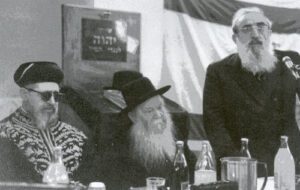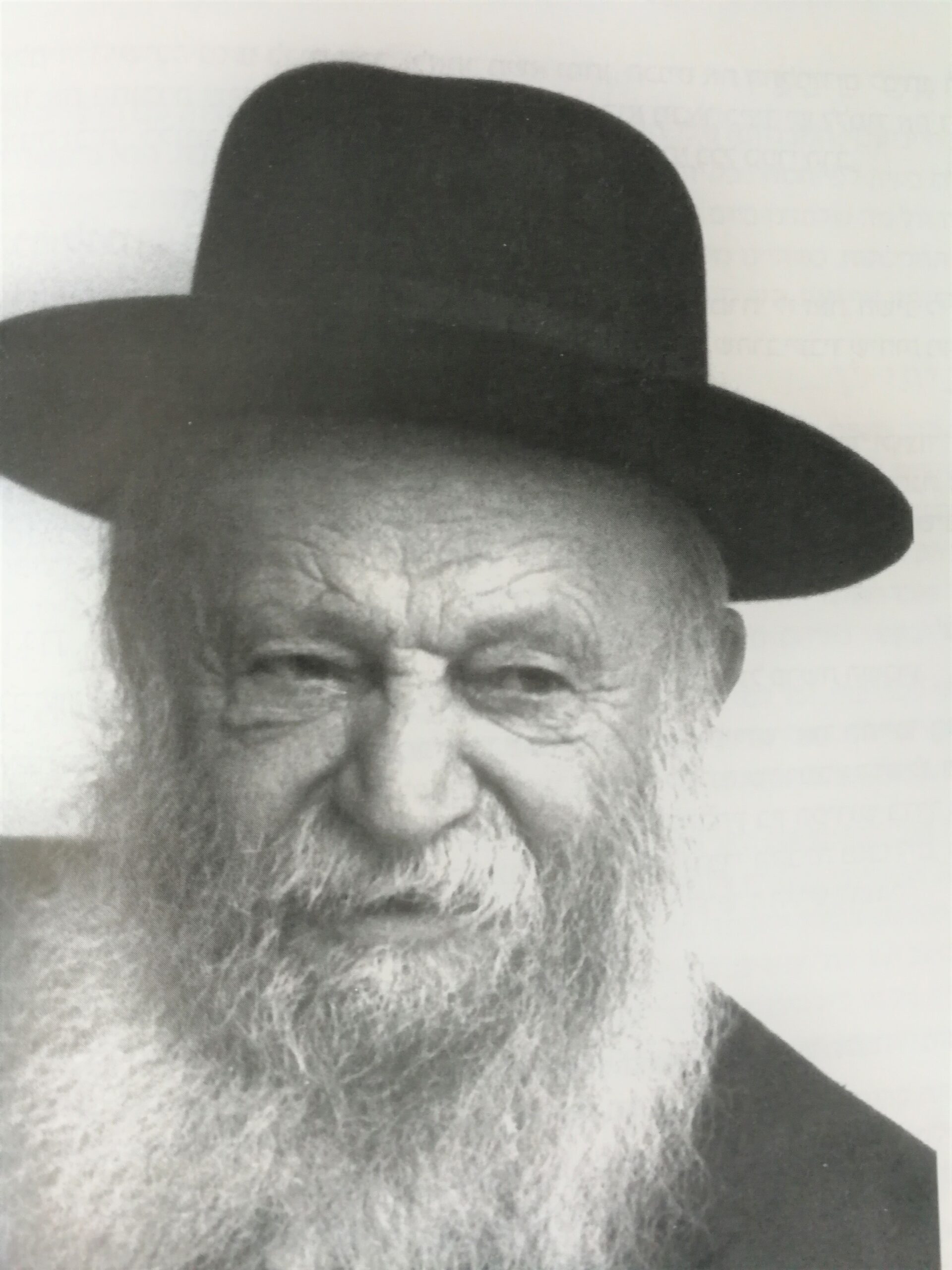The All-Encompassing Mitzvah
by Tzvi Fishman
Because of the differences of opinion regarding the mitzvah of Aliyah, it is appropriate to review some basic understandings that are often cited in the Diaspora. This misunderstanding is largely due to the fact that for nearly 2000 years, we were scattered over the world, without a national homeland of our own, and without a State of our own. We lived as individuals and unconnected communities, minorities in foreign, Gentile countries. The emphasis of Judaism became focused on the private precepts that we could still perform in the exile, rather on the true national character of the Torah.
However, the Torah is not just a list of individual commandments affected a person’s daily life – it is the national constitution of the Jewish Nation, with commandments pertaining to the kingship, judiciary, army, the Temple, and even the agriculture of the Land, commandments comprising two-thirds of the Mishna. Thus, the life goal of our greatest spiritual leaders, such as Moshe Rabanu, Yehoshua Ben Nun, and King David, was to establish the nationhood of Israel in Eretz Yisrael.
Therefore, when G-d chose Avraham to be the founder of a unique holy nation, He commanded him to go to Israel. G-d’s master plan is that His word to the world be established, not just through chosen individuals, but through a chosen NATION. Everyone can understand that a nation needs its own land. Therefore, the Jewish Nation and the Jewish Land go hand in hand.

Thus, when G-d leads the Jewish People out of Egypt, He commands Moshe to bring them to Israel. In preparation for beginning their new life as an independent nation, Moshe gives the Jews a review of the Torah, the Book of Devarim, known as the “Mishna Torah.” Moshe begins by recounting everything that has happened until then, and then he explains the Torah with his own unique illumination, as it says, “Moshe began to explain this Torah.” What is the first thing that Moshe tells them?
“The L-rd our G-d spoke to us in Horev, saying, ‘You have dwelt long enough in this mountain. Turn and take up your journey! Go and possess the Land!” (Devarim, 1:6-8).
The Torah is not meant to be lived in the wilderness, nor in Germany, Russia, Spain, England, or America. The Torah was given to be lived in the Holy Land. Unfortunately, because of the long and bitter exile from our Homeland, this essential understanding of Torah, that the Jewish Nation is commanded to live in the Land of Israel, faded and turned into an abstract dream. It wasn’t possible to return to our Homeland, so the centrality of the mitzvah to Jewish Life wasn’t learned. The focus of Torah learning became on the individual commandments that could still be performed in the Diaspora, and not on the commandments affecting the Nation in Israel, nor on Hashem’s will that we be a light and example to the nations, through our great national light beaming out to the four corners of the globe from Zion and Jerusalem.
 The Torah giant, the Ramban, taught that living in the Land of Israel was the fundamental basis for the entire Torah. He established a fundamental halachic ruling that living in the Land of Israel and conquering the Land are commandments of the Torah which apply in every age (Supplement to the Sefer HaMitzvot of the Rambam, Positive Command #4). Among the supporting verses he cites the command, “Rise up and possess the Land.” In contrast to this, he writes that the rejection of the precept is a rebellion against Hashem, as the Torah itself states: “And when the L-rd sent you from Kadesh Barnea saying, Go up and possess the Land which I gave you, and you rebelled against the L-rd your G-d, and you did not believe in Me, and did not listen to My voice,’ (Devarim, 9:3). The Jewish People didn’t listen to Hashem in conquering and settling in the Land. Thus, the Ramban explains, settling the Land is a mitzvah, and the opposite is a rebellion against Hashem.
The Torah giant, the Ramban, taught that living in the Land of Israel was the fundamental basis for the entire Torah. He established a fundamental halachic ruling that living in the Land of Israel and conquering the Land are commandments of the Torah which apply in every age (Supplement to the Sefer HaMitzvot of the Rambam, Positive Command #4). Among the supporting verses he cites the command, “Rise up and possess the Land.” In contrast to this, he writes that the rejection of the precept is a rebellion against Hashem, as the Torah itself states: “And when the L-rd sent you from Kadesh Barnea saying, Go up and possess the Land which I gave you, and you rebelled against the L-rd your G-d, and you did not believe in Me, and did not listen to My voice,’ (Devarim, 9:3). The Jewish People didn’t listen to Hashem in conquering and settling in the Land. Thus, the Ramban explains, settling the Land is a mitzvah, and the opposite is a rebellion against Hashem.
HaRav Tzvi Yehuda Kook, head of the Mercaz HaRav Yeshiva in Jerusalem, would repeat in his classes several times a year that living in Israel was a commandment of the Torah, saying: “People occasionally ask, where is it written in the Torah that we have to build a State? Apparently, they are not familiar with the words of the Ramban, who repeatedly emphasizes that we are commanded to make sure that the Land of Israel be in our hands, and not in the hands of any other nation. The Ramban states:
“We were commanded to inherit this Land which the L-rd, Blessed Be He, gave to our Forefathers, to Avraham, Yitzhak, and Yaacov, and not to abandon it to the hands of other nations, or abandon it to desolation. Hashem said to them, ‘To inherit the Land and dwell there, for to you I have given the Land to possess, and you shall inherit the Land that I swore to your Forefathers’ – behold, we are commanded with its conquest in every generation (Ramban, Supplement to Sefer HaMitzvot of the Rambam, Positive Commandment 4).
The Ramban continues:
“This is what our Sages call ‘Milchemet Mitzvah,’ an obligatory war. This Land is not to be left in the hands of the Seven Nations, or in the hands of any other nation, in any generation whatsoever…this is a positive commandment which applies at every time” (Ramban, ibid).
The Ramban concludes:
“And the proof that this is a Torah commandment is this – they were told in the matter of the Spies, ‘Go up and conquer the Land as Hashem has said to you. Don’t fear, and don’t be discouraged.’ And further it says, ‘And when the L-rd sent you from Kadesh Barnea saying, Go up and possess the Land which I gave you, and you rebelled against the L-rd your G-d, and you did not believe in Me, and did not listen to this command’” (Ibid).
All of the early and later Torah authorities, the Rishonim and Achronim, decide the law in this fashion on the basis of the Ramban that the precept of conquering the Land applies in all generations, and all of them agree that it is a commandment of the Torah (Shuchan Oruch, Pitchei T’shuva , Even HaEzer, 75:6).
The Ramban also emphasized that the commandments only reach their full value when performed in Eretz Yisrael, saying, “The essence of all of the precepts is that they be performed in the Land of Hashem” (Ramban on the Torah, Vayikra, 18:25).
Rabbi Tzvi Yehuda Kook emphasized that, “The intrinsic value of the State is not dependent on the number of observant Jews here. Of course, our aspiration is that all of our people will embrace the Torah and the mitzvot. Nonetheless, the Statehood of Israel is holy, whatever religious level it contains.”
“There are religious Jews who express a type of criticism and say, ‘If the State of Israel were run according to our lifestyle and spirit, then we would accept it. Until then, we abstain from it.’ They talk as if the State does not belong to them. But the truth is that the State belongs to all of us.”
Rabbi Kook asserted that anyone who refuses to recognize the State of Israel does not recognize Hashem’s rule over what takes place in the world. If the Master of the Universe decided to bring the Jewish People back to the Land of Israel via the vehicle of the State of Israel, who are we to complain or disagree?

Rabbi Kook said that we had to be patient, that Redemption came slowly in gradual stages, little by little (Jerusalem Talmud, Berachot 1:1), and that it would reach perfection with time.
“In the Talmud, our Sages explain that all of the material used in building the Temple became sanctified only after it was set into place. We build with the profane and sanctify afterward (Meilah 14A and B, see Rashi there). This was enacted because our Sages realized that during the construction, workers would sit in the shade of the building to rest from the sun, and thus improperly derive personal benefit from something which had been exclusively dedicated for the use of the Temple. The Beit HaMikdash was built in this fashion, and this is the way the Redemption of Israel develops, in stages, little by little. Just as the stones used in building the Temple were not sanctified at first, so, too, the building of Eretz Yisrael is accomplished by every segment of the Nation, by the righteous and by the less righteous. We build with the secular, even though this causes complications and problems, and little by little all of the various problems will vanish, and the sanctification of Hashem will appear in more and more light.”
The Torah is eternal. The Torah doesn’t change. The commandments in the Torah do not depend on who happens to be the Prime Minister of Israel at the time, or on how many religious politicians sit in the Knesset. What was true in the time of Moshe is true for us today. For 2000 years, we didn’t have the physical possibility of re-establishing the nation in Israel, so we were prevented from doing the mitzvah, but the moment the opportunity returned with the establishment of the State of Israel, then the commandment to live in Israel returned in all of its force.
Yes, I know. It is inconvenient to learn these matters. It is easier to pretend things are otherwise and to leave all of the complicated work of nation building to the Israelis. Nonetheless, one merely needs to open his or her eyes to see that it is G-d who has brought about this miracle of rebuilding in Israel. Just look at the immensity of the undertaking and our miraculous rebirth – an undertaking involving world wars, international proclamations, the Holocaust and the gathering of the exiles in its wake, followed by a miraculous agriculture boom, incredible construction of new towns and cities, victories in wars, and the building of one of the globe’s most powerful countries, in a matter of decades, as well as becoming the Torah center of the Jewish world. Who has brought all this to pass if not the Master of Heaven and Earth? Why not join this holy enterprise? Come along on the adventure of your life! This is your destiny. As a member of the Jewish People, this is what you were created for.






